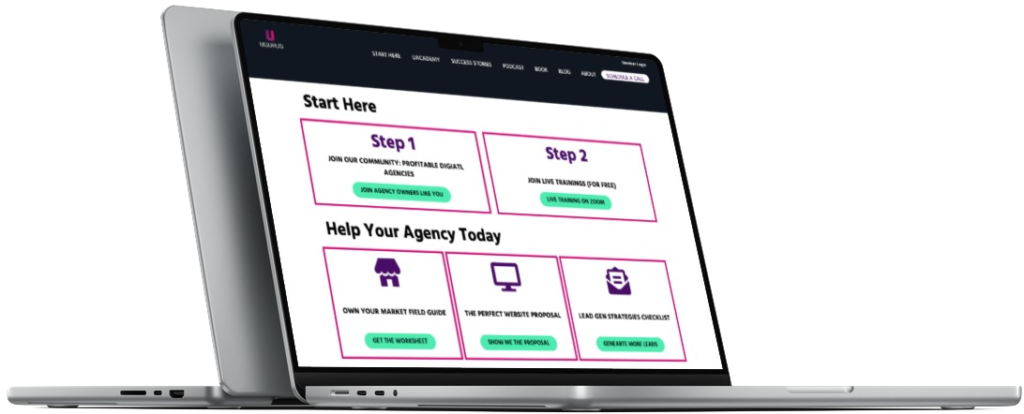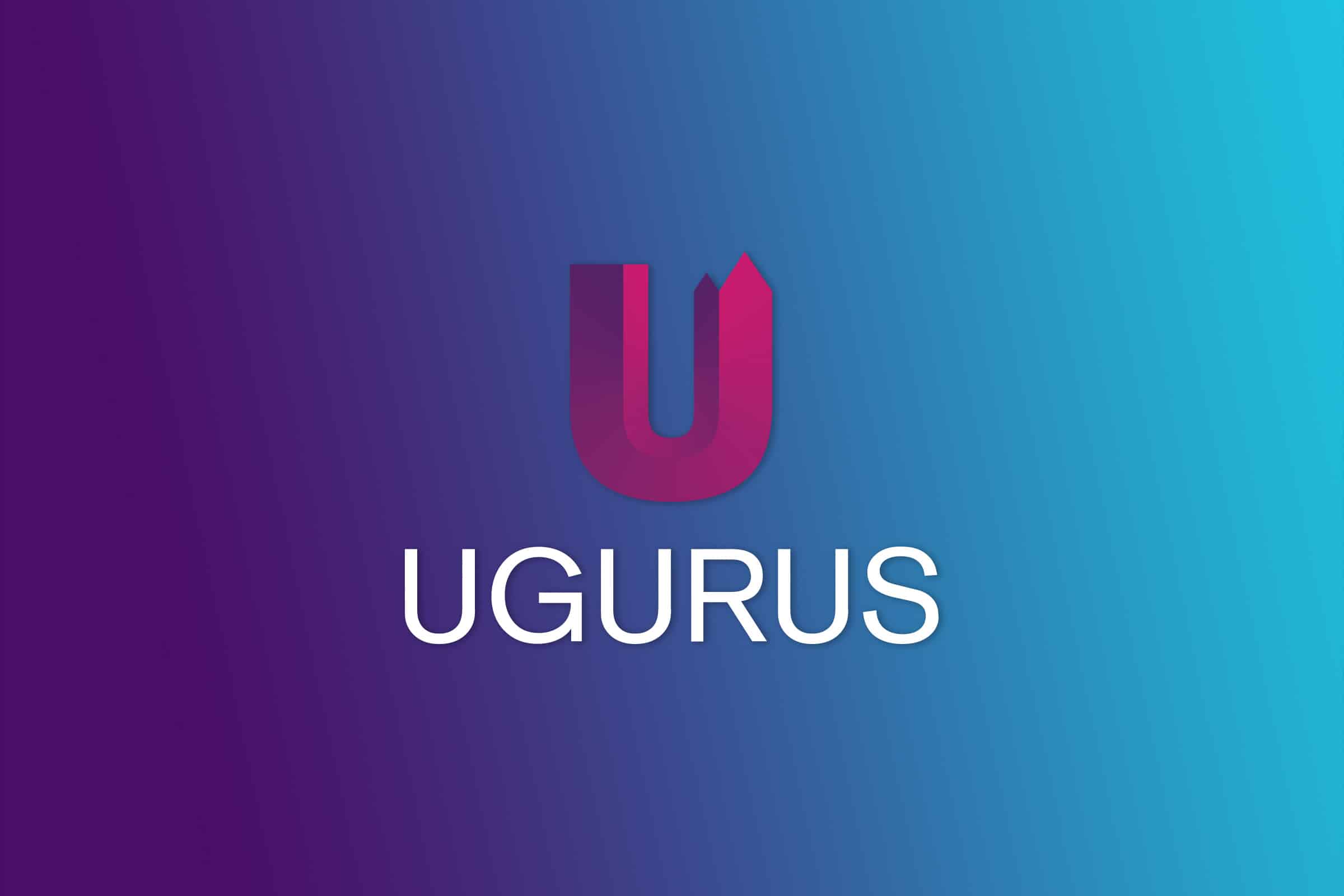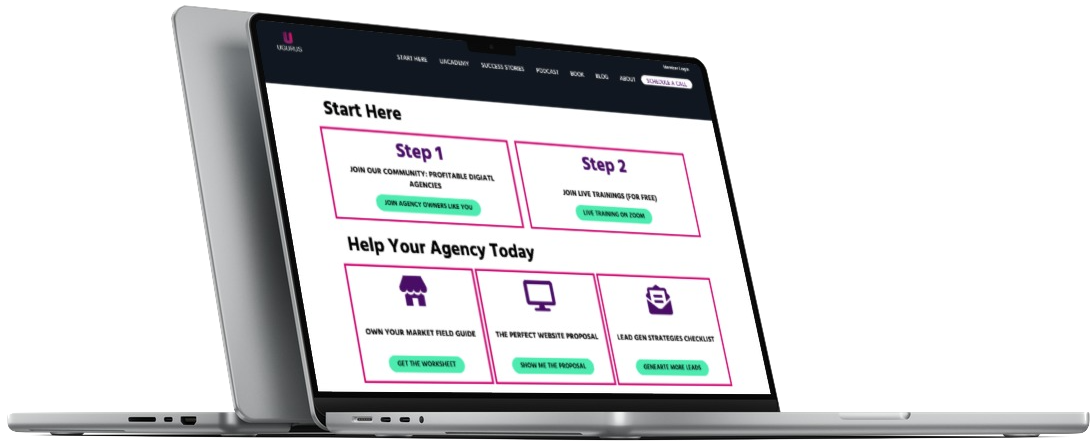Corey Kohn COO and Partner of Dojo4 in Boulder CO discusses her transition from video editing to managing a web agency, culture, community building, and her and Dojo4’s daily practices.
Corey joined Ara Howard at Dojo4 in 2010. Corey knew immediately that she wanted to be part of Dojo4 and their talented culture.
After showing us around their office just off Pearl Street, Corey and I sat talked in more detail about what brought her to Dojo4.
You can find more information about Corey Kohn and Dojo4 by visiting their blog, and following them on Facebook and Twitter.
Video Transcript
Brent: I’m Brent Weaver and you’re watching “uGurus,” the must-watch Web series to become a more profitable and in-demand Web professional. Today, I’m in Boulder, Colorado at dojo4 with their COO and partner Corey Kohn. Welcome to the program.
Corey: Thank you.
Brent: So, where did you get your start in Web?
Corey: I got my own start in Web here at dojo4. Now, that’s going on almost four years ago. I had no background in technology whatsoever, unless you would include video editing as technology, which it’s quite technical. But now, a lot of it is Web-based, but it didn’t used to be when I did it.
And I started here managing the company and then became a partner a short while thereafter.
Brent: So, what attracted you to dojo4.
Corey: That’s actually really easy to people. I was friends with Ara a little bit, who’s one of the co-founders and my business partner. And I had been friends with him for a while. I knew some of the people that worked here and I just liked the people.
Brent: And we’ve only been here for a few minutes and you guys have a really good vibe here. Tell me a little bit about the dojo4 culture.
Corey: To me, I think there’s two things that are my favorite things about dojo4. One is our skill that I feel really proud about how smart we are; we’re really a smart people. And the other thing is the culture. The culture is just really unique.
I think it’s very family-oriented, so we often have dogs here, kids. Partners, wives, husbands might work out of here. As you and I were talking about before this interview, that this place actually started as a co-working space. And a bunch of guys got together and said “We all want a space to work together.”
That didn’t last for very long. Because after I think it was like, really, a few weeks, people would be working here and basically clients would walk through the door and say “I need someone to work on this thing.” And so, very quickly it became clear that the need isn’t co-working, the need is service agency. So, that’s what it became.
But it still has that vibe. We have an open-door policy. We have strangers come in all the time that have heard about dojo4. “Oh, I’m here from Singapore, I’m here from Australia, I’m here from San Francisco. Is it true that I can just use this space.” And people just look and say “Yep, sit down. This is the WiFi password.”
So, we have a lot of strange, wonderful and interesting people come through here. You can sort of see the space; it’s small, it’s intimate. I think all of us really value our ability to have our work integrated with our lives. And I hate to use that term “work/life balance” because I think it’s a little bit almost of a false dichotomy.
Everything needs to be supported here. We need to be able to support each other and support each other in our careers, in learning more, in having lives that are fulfilling. Having days that have potential for joy and good health and all that kind of thing.
So, we like to spend time outside. We like to have this be a really workable situation and I hope that comes across.
Brent: Sure. So, it’s kind of like work/life integration most like here. Not trying to balance, but you’re just trying to make both of those things work together really well. And what’s the current size of dojo4?
Corey: Well, it fluctuates because of the open door policy. So, it really depends on the day and the week and the month. We have, I think it’s now five or six full-time employees. And then, a whole roster of people that are contractors, but really work with us a lot.
So, it’s sort of hard to differentiate there. And I’d say, at our biggest, we’re somewhere around 10, 15, something like that.
Brent: And who’s a typical customer for dojo4?
Corey: So, we started by really working mostly with other startups and getting them from the inception of their idea all the way through to market. And over the years, that’s changed somewhat. So, we have a whole range of clients.
Mostly, I’d say it’s still local. We really like to work with people locally, but we’ve had a lot of fun working with people in San Francisco. We just did some design and a little bit of UI work for Code for America in San Francisco.
Brent: I saw that on your website. Very cool.
Corey: That was really fun working with them. We worked with Amplify, which is an educational corporation in New York City. They’re actually a subsidiary of News Corp., so big there.
And so, we’ve liked working with big companies like that, too. But we’ve also worked for a lot of companies that are going through Techstars here in Boulder. And those companies are every which way in terms of size. Mostly, though, they’re pretty small and they’re just building their startup. They’re just at the beginning and we do a lot of sort of technology consulting and MBP stuff for them.
Brent: So, besides random people walking through the door and maybe Techstars, how else do you guys get clients?
Corey: Well, we’ve been really lucky. And I think, mostly, it’s because of our winning personalities. No, I think it’s because it’s a small town and I think we have a good reputation. And so, we’ve hardly ever had to actually look for work.
We usually just, word of mouth, people come to us. Ara, who you’ll be talking to, has a really good reputation as an engineer and technologist. And so, that goes a long way. Usually, it’s just word-of-mouth. Mostly former clients recommending us to newer clients.
Brent: Are there any type tactical things you guys do in your projects to make, maybe, that happen more often?
Corey: Yeah. I don’t know if it’s really tactical, but I don’t know if this really answers your question. But I think we put such an emphasis on the human relationship with our clients and really understanding our clients’ problems. Like what actually is the problem. Not how we’re going to make the most money out of this or how are you even going to make the most money out of this. Even though that might actually be the problem in which case, we’ll try to help solve that.
But for the most part, it’s like what are we actually dealing with here from the technology point of view and from the business point of view? And then being really, sort of, I guess, stringent in our transparency about what we think will work best there.
And so, I find because we put such an emphasis on that, that our clients end up, hopefully, for the most part, trusting us. Because sometimes, we even say things that they might not want to hear. Because it’s either too expensive or why would it be so cheap? Or “Wait, I can’t make that pivot at this point.” Or something that’s not necessarily comfortable.
And I think that’s what makes people trustful, if you’re willing to be truthful for them. Even if it’s not for a benefit. Even if it means we lose them as a client or something like that. And I think that trust then translates to great word of mouth.
Brent: Got you. Getting the referrals and ongoing business, stuff like that.
Corey: Absolutely.
Brent: So, what’s a typical project look like in terms of maybe the size and revenue of that project? Then also, what kind of technologies and stuff are you guys working with?
Corey: The size also varies. We’ve done really small, just standing something up really quickly. We tend not to do that. But sometimes, if it’s really fun, we’ll stand up a quick app and maybe it’s a few tens of thousands of dollars, maybe $10,000.
We’ll do projects like that, but maybe for ongoing clients and there’s a bunch of those in a row kind of thing. We’ve had projects that are probably a little less than $500,000 end up being over a long period of time, maybe $300,000.
For the most part, we’re not really big. And we don’t tend to take on really big things because we don’t think we’re the best group for it. And in terms of our wheelhouse, we do everything from UI/UX, front-end design. And we really specialize in building responsive and designing responsibly. All the way through to data architecture and we tend to use rails (?) for that.
But it sort of depends on what’s needed most.
Brent: So, then, with your role in the business; in Web, you’ve been around for five years now, in particular.
Corey: Four.
Brent: Four? Okay. What are you best at within dojo4?
Corey: I’d say our favorite projects to work on, which I think is what we’re best at, are ones where the client either is really clear about what they want, but they really want a partner rather than just an implementer. So, someone to really sort of conceptualize with them and think it through with them.
Or even a client who actually has an idea, but really doesn’t know what they want. How they want that implemented. And they really need, again, a partner who’s going to creatively think that through. So, that we have some sense of creative ownership with them. I think that’s what we do best.
And then, we have so much skill in-house that we kind of use that skill as a toolbox and kind of pick and choose. “Okay, what do we need here?” We do mobile, we do native (?), we do all sorts of things. And we even do just pure design sometimes, if that’s what needed.
So, I think it’s really more the partnership that is what we’re really good at, than a specific tool set.
Brent: And then, your role, in particular?
Corey: My role in particular? What I like to do the most?
Brent: What do you think you’re best at?
Corey: What do I think I’m best at? I think I’m best at community building. I think I’m best at community building, I think I’m best at…sometimes, introduce myself as the glue that kind of keeps the whole thing going. COO is like, whatever. It’s like being a glorified secretary.
It’s like “The thing needs to go over here, the bill needs to get paid.” That stuff, I’m good at it. It’s not my favorite thing in the world. But I think really making sure that people are happy doing what they’re doing. Making sure that the people that work here are feeling really well-supported. Feeling like their work is important. Feeling like their lives are integrated, all that kind of stuff. And I feel like that’s what I’m really good at, is supporting that.
Brent: In terms of building community, I’m interested in that idea. I don’t know if it’s maybe three values or three different ideas that you’ve been able to bring to the company to do that kind of community building. Maybe define the community building aspect. Is it just with the team, the team and the customer?
Corey: No, I mean, like, really out in the community. Which includes the team, it includes clients. But it also includes our neighbors. It includes the whole ecosystem of the tech industry here in Boulder which is really robust.
It might people from in town, out of town. And I don’t know if there’s three things, but two things, right away, come to mind in terms of community building. Which I think it’s been important to our culture to be part of a larger community. And I also think just like paying the bills.
That instead of us putting a ton of money into marketing just by being friendly in the community and supporting events and movements and all that in the community, I think that’s one of the reasons why we don’t have to look for clients often. So, I’d say the two things that come to mind. One is a principle, which is generosity. And I think that goes across the board.
So, that’s with our team. That we should be generous with each other between the team, within the company. We try to pay our employees really well and our contractors really well. It means being generous with our clients. So, not being nit-picky about little things. If they’re not happy…you know, being generous with them.
And I think it means being generous in the community. So, we host a lot of events. If a client comes to us and we don’t think that we’re the best for it, we try to refer it to other agencies in town. And I think I actually did a little talk on embracing your competitors. Instead of sort of like feeling combative or even that competitive.
Really sort of having a sense of co-building a community and healthy landscape. So, that’s where a good economy comes from.
So, generosity being one part of community building. And then, I think in terms of us being a technology company, another element of community building is not being exclusive to the technology community, but really expanding outward there. And so, not having a sense…just being siloed [SP] within the technology community or the tech community.
And one example there that we’ve done is we were a co-founder of the Impact Hub. I don’t know if you about Impact Hub. That it’s an international organization of co-working spaces. It’s really a community of co-working spaces around the world that supports impact entrepreneurs. So, social venture entrepreneurs.
So, we were co-founder of that. We have one in Boulder, now.
Brent: Very cool.
Corey: It was really fun to be able to support that. So, we’re tied in there with the impact community, the social venture community. I mean, we’ve hosted, like, high school students here who are wanting to talk about their aspirations and some of those aspirations being in the tech industry, but a lot of them not.
We host all sorts of different things and I think having it not just be focused on tech is one more realistic to the way the world really works.
Brent: It’s not all tech. We may have to cut that part out.
Corey: “It’s only tech, it’s only tech.” Yeah. Amazingly enough, it’s hard to move over that in Boulder. Either [inaudible at 00:15:13] or are you in front of a computer? There’s other things, too. So, yeah, I think it’s sort of being expansive.
Brent: Do you have any specific daily, monthly, weekly practices that you do that have kind of gotten you to where you are today?
Corey: Yes, funny you ask. Some of my favorite things. I think one of the most important things we do is we do a daily stand-up at noon, so not real early. Because some people have family obligations in the morning or biking obligations, something like that.
So, we do Google Hangouts. Either some people might be in person. Some people online. And we just check in with each other real quick. 10, 15 minutes, what are you working on? And having that consistency I think really brings people together. Especially when people are working remotely.
Another thing that we do is we host yoga here every Wednesday evening. That’s really nice. It’s like the end of the day, people lay on the floor together, stretching their legs.
Brent: I love that.
Corey: We had Jud Valeski, who is the now CTO of Gnip. He used to always come. Now, they moved across town, so he’s not here anymore. But, yeah. Just people come through for that kind of thing.
We used to host meditation and then I went on maternity leave. And I was the one that came early in the morning to host meditation on Tuesday mornings and no one else wanted to do that. So, hopefully, when my daughter is a little older, we’ll start that up again.
We do special Friday stand-up. So, the one theme here is having everything be the same every week. None of these things are mandatory, so you don’t have to be at stand-up. But the fact that it happens every day at the same time allows people these sort of touch points to feel like they’re connected with the people they work with. That they kind of don’t get siloed. That they can work remotely without starting to feel kind of off in the distance somewhere.
Our Friday stand-up, we started it because of what you and I were just talking about about one of our greatest values being that we feel like we need to understand what our clients really need. And Ara and I were talking about this years ago.
And he said “I really feel like if we’re going to understand what our clients really need, we really have to understand each other.” And that sort of started a whole thing for us. About feeling like that’s actually one of the most important things. And doesn’t mean that we need to be in therapy together or anything like that.
But we do a few things around that in terms of just getting to know each other as people, more, which I think is probably more important than any technology tool or anything like that in terms of what we can offer to each other and our clients. So, Fridays, our stand-up…I wrote a blog post about it, but it didn’t widely circulate.
Where one person has a question and we choose that person the week before and the question is usually non-work related. So, it’s not particularly around the technology tool or something like that. And it can be like “What is something you’re looking forward to in the next few months” or something like that.
And then, we just take turns answering the question and there’s usually a lot of laughter in the room. It’s really quick, ten minutes. And then, we always have lunch brought in on Fridays and we all have lunch together on Friday. Usually, someone else drops by. One of our kids or someone else.
Brent: Very cool.
Corey: So, that’s really nice. And this is a really important one, which we have just been doing for almost a year, which is we do weekly organizational development. Which I actually think…I don’t want to proselytize to your viewers, but I think it’s one of the most important things that a company can do, is really put some resources into organizational development.
And not just a monthly or a quarterly or a yearly retreat, something like that. But something that’s consistent that really feels like it’s really supporting the people that work at that company.
Brent: Can you define a little bit of organizational development for maybe some folks that aren’t familiar with that concept?
Corey: Yeah. I think it’s really broad and so, it’s a little bit hard to define, because it could just be a retreat. So, I guess a way to define organizational development would be to say a methodology for optimizing the…what would you say, sort of a self-knowledge of a team?
So, whether that be self-knowledge of a group or self-knowledge of an individual. It could be working around how to deal with stress response. How to work with conflict within a group or with a client. It could be dealing with organizational structures and how to make that work better within a company. Working with managers on how to manage better. Working with whole teams on how to communicate more effectively.
Brent: So, is this content that you would bring in a speaker for? Or are you doing internal, kind of [inaudible at 00:20:37] type stuff?
Corey: You can do all of that. What we decided to do is we hired a team. It’s two consultants. They come in and full disclosure, one of them is my husband. I didn’t know if it was going to work out, but it’s worked out really well, I think.
And they meet with us every Tuesday sort of late afternoon, early evening. And we have an hour. And we’ve done all sorts of things.
The last few weeks, we’ve been talking about what, for us, is the perfect client? And that’s brought up all sorts of things about how we might want to attract more of one kind of thing or be more clear about what’s important to us.
We worked on things like, sort of understanding neurology and why we respond the way we respond to certain things. And that way, I know that if you get really irritated with things are messy or something like that, then I know. Like, don’t be messy around Brett. Or understand that that’s going to irritate him and there’s actually sort of neurological structures.
So, everything from science to whatever. And a lot of times…Sam and Michael, who do organizational development for us, they come in with a plan. “Okay, we’re going to work on this.” And we end up, instead, just they sit there and sort of hold a space for us to have a conversation that really needed to happen.
“This project didn’t work and we never debriefed it. We want to talk it about now” kind of thing or whatever.
Brent: Very cool. It sounds like you’ve got a lot of really good, kind of ongoing weekly type of check-ins [inaudible at 00:22:11]. And it sounds like that’s helped kind of build the culture and the closes that you guys have.
Corey: I think so.
Brent: When we first walked in this office, just for the audience to understand, you could feel the vibe. You could feel the vibe of dojo4, so I think that’s really cool.
Corey: That’s so nice to hear. I think there’s always room for improvement. And I think that’s also part of self-knowledge. Yeah, we can always get better. And everyone is fallible in some way and it’s okay to make mistakes. But I think we’re doing pretty good.
Brent: So, what kind of trends are you guys following right now as a team? Like some technologies or maybe business trends? Anything like that?
Corey: Well, I’d say in terms of design and front-end, it’s actually sort of across the board. But really focusing a lot on responsive. And we won’t really work on things that aren’t anymore. That’s not true. Depending on if someone really doesn’t need that, then we’re not going to plaster that on top of their project.
But for the most part, responsive is sort of big for us right now. I’d say, actually, probably one of the trends is organizational development. I think that’s really starting to show up in the technology community. I know that a lot of companies that are going through Techstars are starting to value that more. And I’d say we’re probably riding that wave a little bit. Maybe we’re on the front of it, I don’t know.
I think this is maybe not really a trend, but I think sort of figuring out about what really works in terms of working remotely. I’d say that’s a trend that we’re focusing on a little bit. Which is, how does that work? How can we harness technologies?
Actually, I’ll mention one more thing that we do use for that that sort of works a little bit in conjunction with our stand-up. Which is that at the beginning of the day or whatever that means for different things for different people. Some people, that’s 6:00 a.m., some people, that’s 10:30 or 11:00.
That we send in a status message to the group. So, we have just an e-mail list. And just you send it to status@dojo4. And you just, in the subject line, say “This is what my day looks like.” Pare it down to a few words, that kind of thing.
And that’s been really great. Because people can just look and see in their inbox or maybe they file it into a certain pool or whatever. And they can just scan really quickly. This is where everyone is. We’re not using a fancy project management tool. It’s real simple, everyone uses e-mail. And I can just see “This is where everyone is at. That person is going to the dentist at that time.”
You just put in your standout things there. It’s a really simple that any company can use. And it allows people to not have to be physically there for something. Or sort of go and send out a special notice “I’m going to a doctor’s appointment today.” Or “I’m going for a hike at this time,” or whatever. It’s been a tool that really works well.
Brent: So, what’s next for dojo4?
Corey: Well, we have a few things in the works. I feel like we’ve really hit a stride. And it’s sort of taking some time to figure out, like, the right team and all the kind of things that you need to find to make things kind of gel properly. And I feel like we’ve really gotten there in the last year or so. So, we’re actually sort of looking at some internal projects right now. A few little product-y things.
Mostly for fun, but we’re really putting some energy into it. And again, not really technology-based tools, but not a bad technology. One of the things we’re working on right now is around localizing the art economy. So, making a supportive economy for local artists.
Brent: Very cool. It seems like every agency I talk to, they’re dipping their toe. Or maybe their foot or maybe they’re cannonballing in the project pool. That’s really cool. It sounds like you guys are finding something that you have some passion around, which is cool.
Corey: Yeah. And I think that’s sort of like a common playbook. We work for clients, we work for clients. And then, we want to make something ourselves. And I think it’s a natural life cycle kind of thing. I think we’re not really tied to that, but I think now we have the resources to kind of explore it and that’s exciting.
Brent: If you weren’t doing this, what would you be doing?
Corey: Personally? If I wasn’t doing this, I think I’d be focusing on my photography. I worked as a photographer for a while and probably spending more time in India. I love it there.
Brent: Very nice.
Corey: I’d be meditating.
Brent: You’d be meditating. All right, very cool. Well, I definitely wish you all the best. Hopefully, we can have you come back on the program sometime in the future and do a little check-in. But it’s great hanging out at dojo4 and wish you guys all the best.
Corey: Really nice to have you here.
Brent: Very cool. Stay tuned for more great content from uGurus.com.
GET YOUR FREE AGENCY ACCELERATOR PACKAGE





